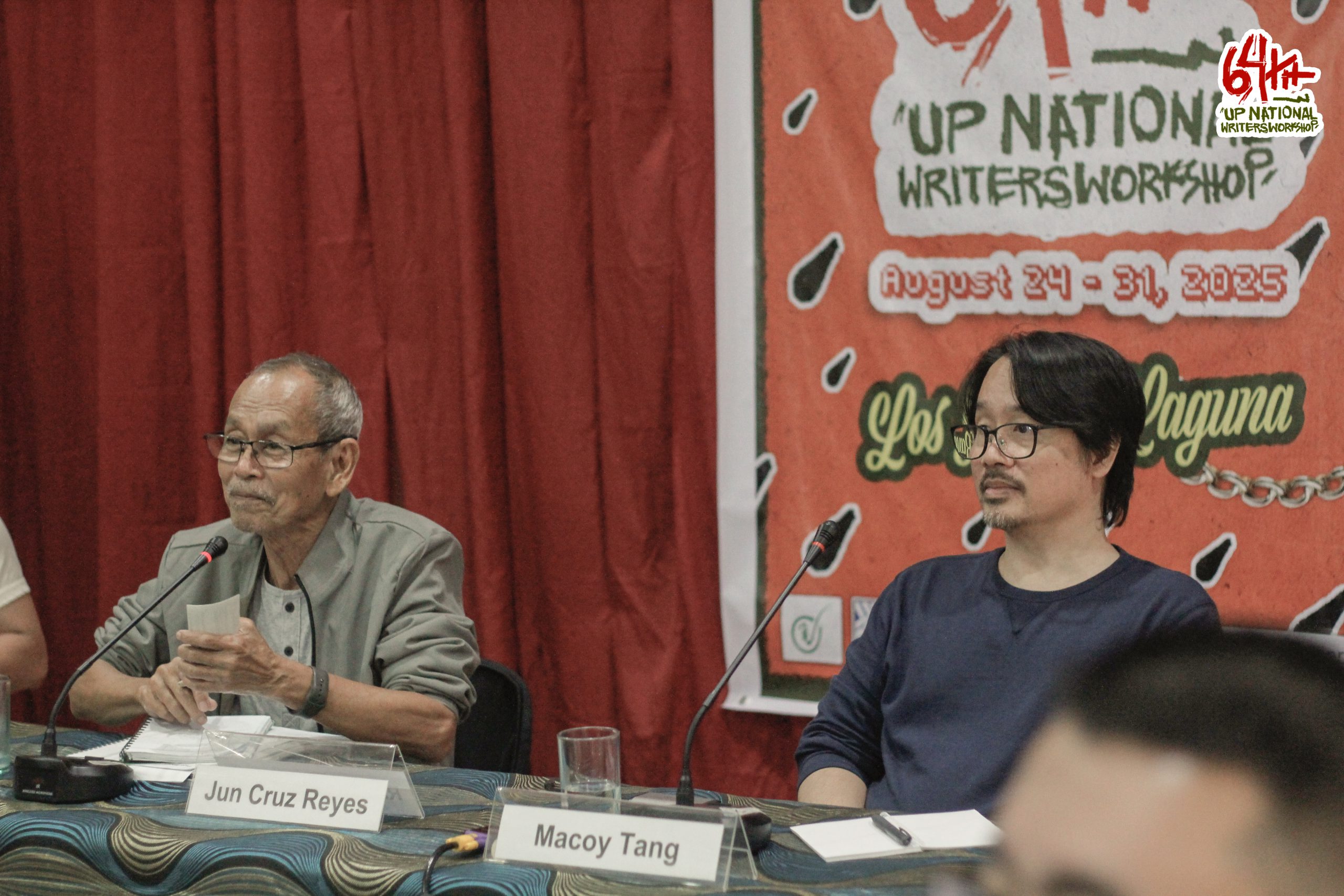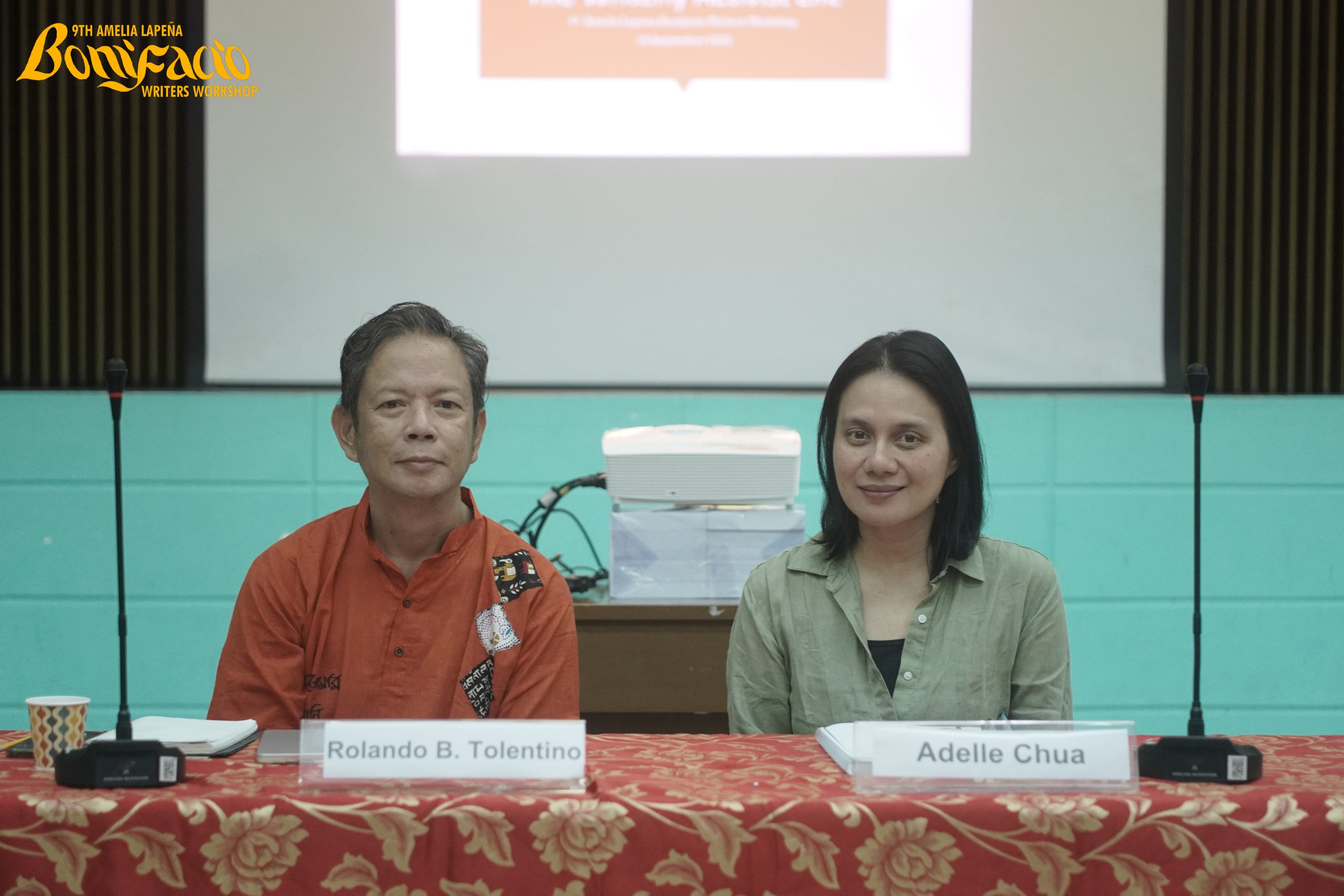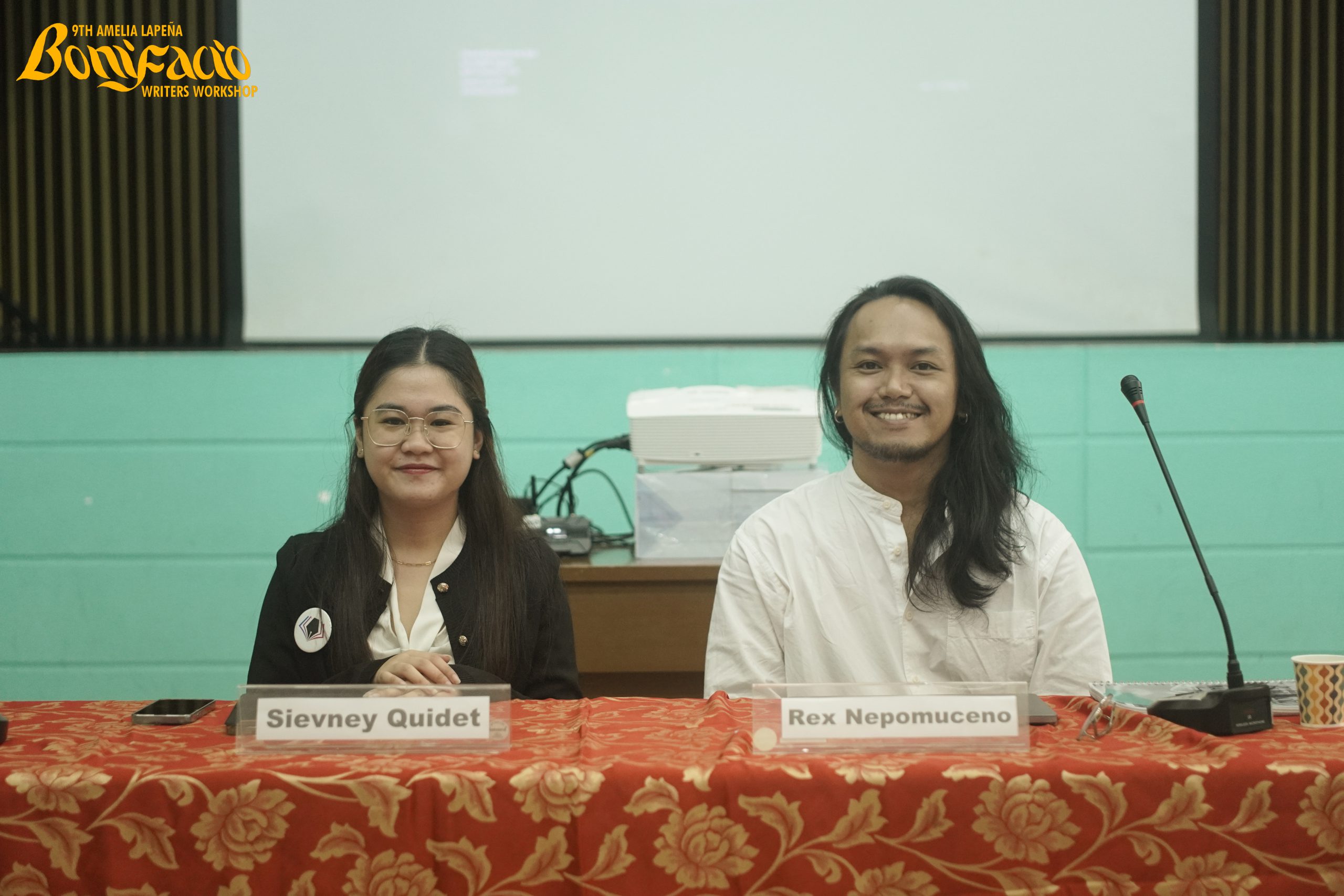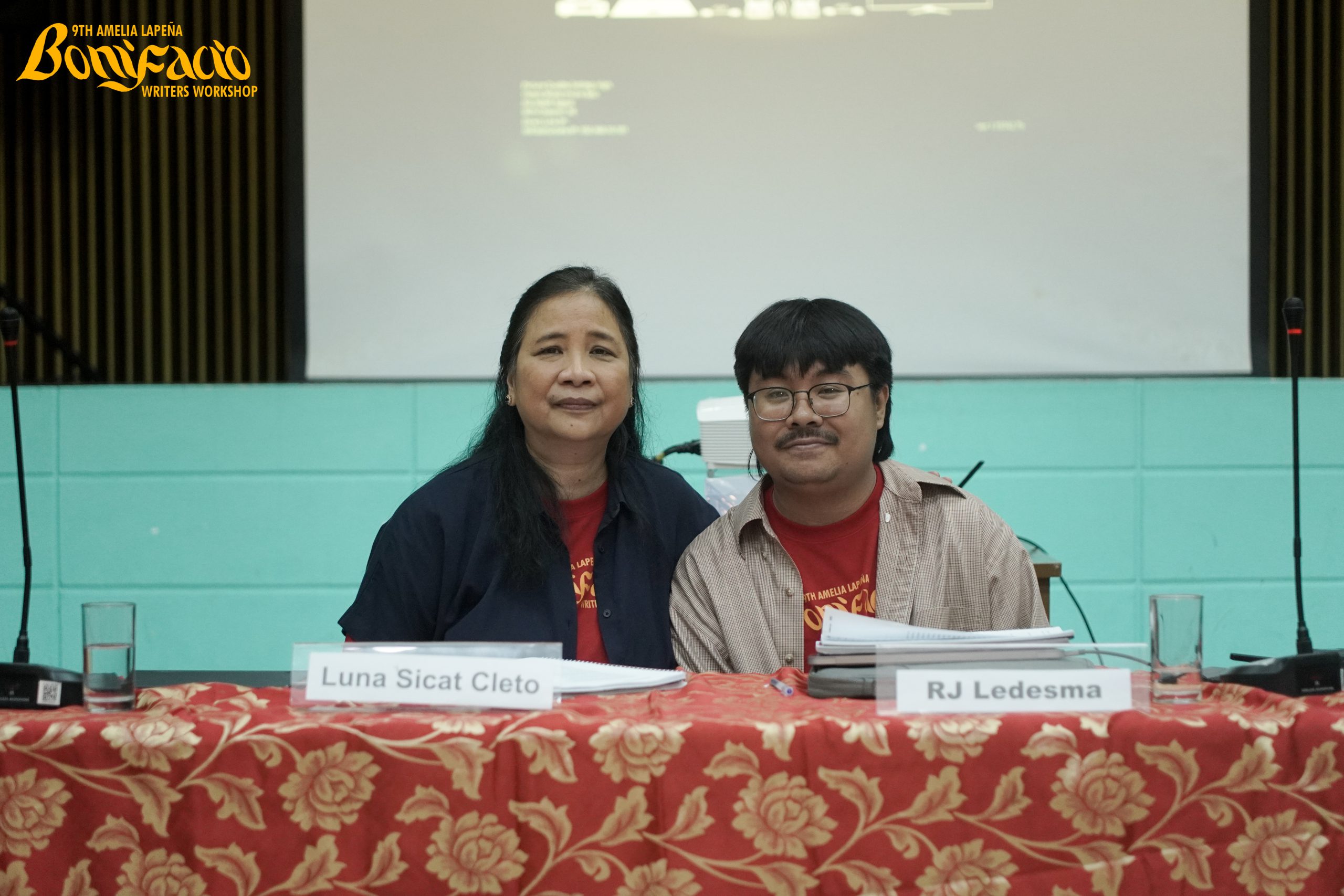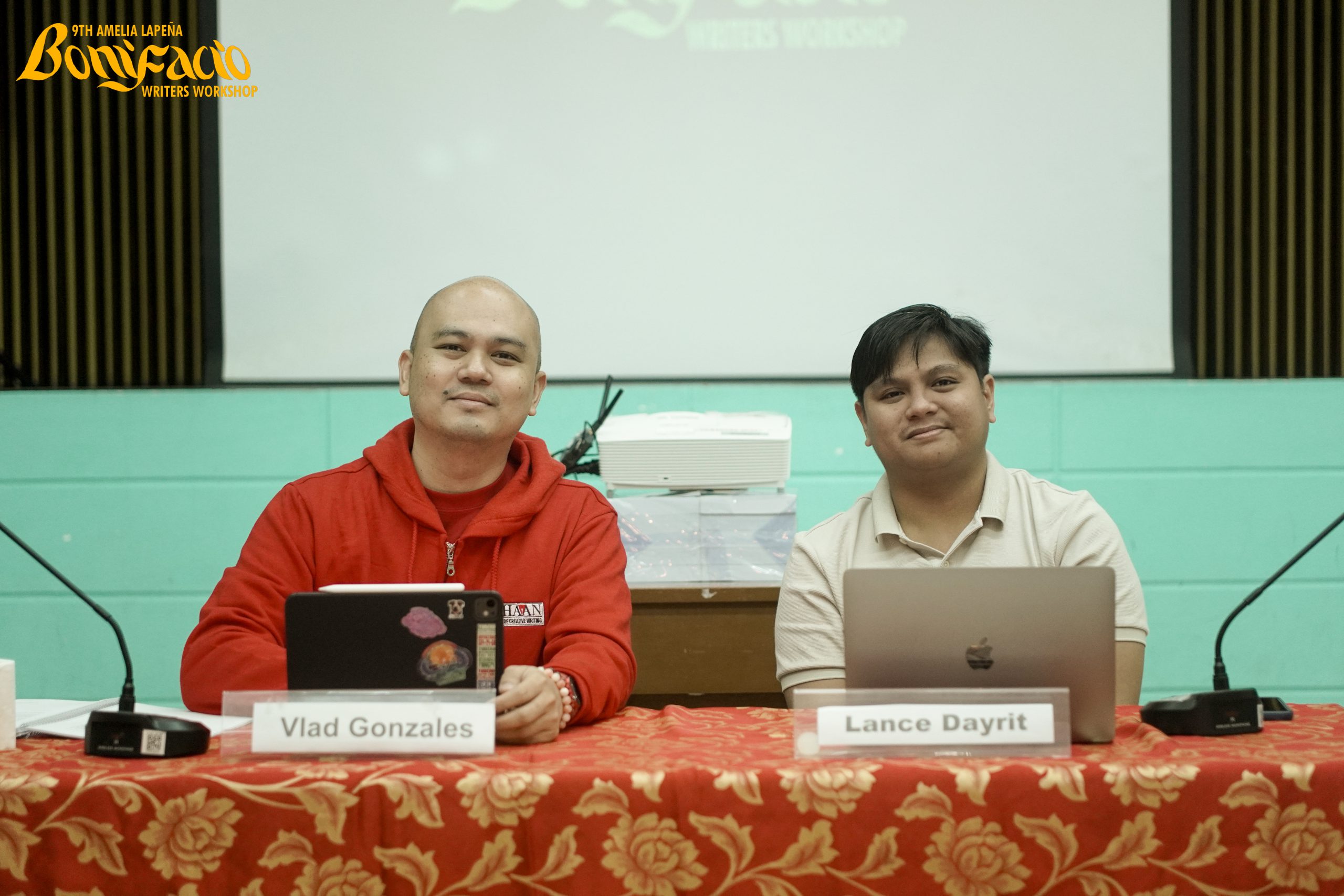Fellow: Macoy Tang
Moderator: Jun Cruz Reyes
“Ano ang panitikan sa panahon ng multimedia?”
In introducing Macoy Tang’s two stories—“TraQer” and “Malacañang Dwende Tells All”—Dr. Jun Cruz Reyes prefaced the session with a pertinent question. Due to the apparent influence of Internet culture and the digital age on Tang’s works, he first reflected on how language and literature has evolved alongside different technologies—“Ang panulat, kamukha ng wika, ay umuunlad din.”
Regarding his poetics, Tang described having grown up on “komiks with a K,” pertaining specifically to works that were cheap, often serialized, and ubiquitous. He pointed out how such works were often considered to be inferior to serious literature. While a new age in Philippine comics has since flourished, the form still exists in a purgatory between literature and the visual arts—thus, precarious in its position with regards to funding and visibility.
Tang described his own works as “Filipino life through a pop culture lens.” His own influences include the heavily stylized violence of Hong Kong exploitation cinema and the irreverent, anti-establishment humor of publications such as MAD magazine. With regards to literature, he professed a preference for Hemingway’s “show, don’t tell” edict and the imaginative breadth of the science fiction/fantasy genres.
Of Tang’s two works, Dr. Eugene Evasco described “Malacañang Dwende Tells All” as more faithful to the sensibilities of the short story form, while “TraQer” seems to work better as comics. This sentiment was echoed by fellow Rayji de Guia, who pointed out that “TraQer” seemed almost to contain instructions meant for the illustrator. She also drew attention to the work’s failure to engage more deeply with the very political issues it evinces, particularly state-sanctioned violence during the Duterte administration.
Another point of improvement for “TraQer,” as raised by Dr. Vladimier Gonzales, is the possibility of expanding its aspect of “game-ness.” He pointed out that the idea of the game, as applied to literature, carries with it interesting and perhaps productive potentialities. One example is “negotiable consequences,” the capacity of players to choose and arrange for the outcome of a game, as opposed to the stark finalities of real life.
In response to these initial comments for “TraQer,” Dr. Cristina Pantoja Hidalgo disagreed that the piece is incomplete as a short story, or meant to be illustrated, insisting that it was presented as fiction and worked as such. She also presented her view of it as a “postmodern” piece of speculative fiction, and thus not beholden to social realist elements. Finally, she praised the work as exciting and new, written in “perfect English.”
Dr. Ramon “Bomen” Guillermo pointed out several inconsistencies in “TraQer”, the first of which is the superfluous reliance on smartphones when the much more advanced “smart glasses” already exist in-universe. Secondly, he called attention to a possible weakness in the worldbuilding—in a surveillance state where civilians serve as a type of para-military force, why would criminals be afraid of “trackers,” unarmed as they are? What is the reasoning behind this spectator sport?
Both Dr. Luna Sicat Cleto and Dr. Rolando Tolentino emphasized that Tang’s works cannot escape the need for urgency and insight, particularly since it implicates political matters. The former took issue with the incongruencies of the dwende’s account in “Malacañang Dwende Tells All,” as compared to our factual knowledge of Imelda Marcos. She questioned the merit of fictionalizing a real-life person in such a way, and if the piece satirizes or simply reformulates another Marcos myth. Meanwhile, Dr. Rolando Tolentino referenced theorist Frederic Jameson in warning against the dangers of pastiche, or “parody without irony.”
To close the session, Tang responded to several of the criticisms of his works. He professed to technology not being a central concern in “TraQer”; rather, it is the attitude of the cast of characters he wished to spotlight. In his writing process, he sought to extrapolate the perceived callousness with which many of our countrymen reacted to the Tokhang killings—“…ginawang laro ang pagpatay, ang pagpatay bilang laro.”

